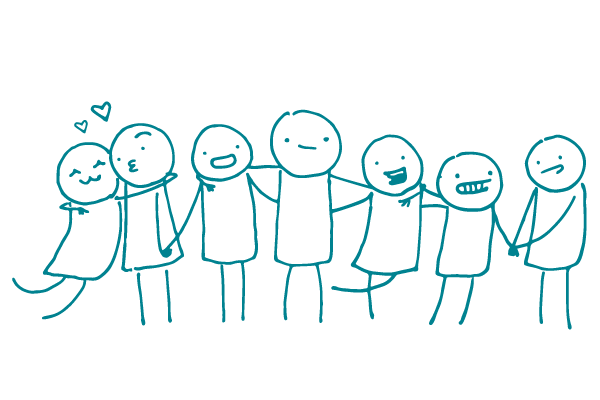
All relationships have their tough moments. (Well, except for ours, dear readers — of course.) Your mom nags you about that overdue haircut, your roommate leaves his dishes in the sink for 3 days, your friend never pays you back that $20.
But even though our friends and family can drive us a little crazy, they can also have a positive impact on our physical and mental health. That’s because the people in our lives can offer a major benefit: Social support.
There are a few different kinds of social support:
- Emotional — like when someone shows empathy, concern, or affection
- Instrumental — like when someone gives you a ride or cooks you a meal
- Informational — like when someone offers advice or guidance
- Companionship — like when someone spends time with you or shares your interests
So, how exactly does social support relate to health? You get a kiss on the cheek and your headache goes away? Well, not quite. Thankfully, there are models that help explain how social support works.
- The stress-buffering model says that social support can help people cope with a stressful situation by protecting (or buffering) them from the bad health effects linked to stress. According to this model, social support is most helpful during stressful times.
- The direct effects model says that social support has a positive effect on health overall. For example, the social support people get through ordinary interactions enables them to keep their emotions in check, thereby improving their mental health.
As health communicators, we aren’t directly involved in conversations between our readers and their loved ones. (That would be creepy.) But we can still promote social support. For example, we can:
- Give tips on how to help a family member or friend through an illness
- Remind patients to reach out to friends and family members for support
- Let patients know how to access relevant support networks
- Draft talking points to help health care providers talk about sensitive topics
The bottom line: Social support can have a positive impact on health, so be sure to promote it in your health content.
Browse recent posts